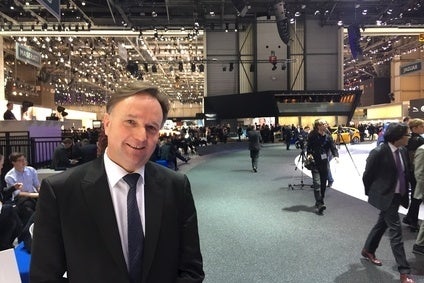
European automotive supplier body, CLEPA, says its members will have a major role to play in the rapidly evolving sphere of autonomous driving.
The concept is dramatically gaining traction in Europe with Volvo for example, planning to introduce 100 self-driving cars in its home city of Gothenburg in 2017, while the UK recently approved driverless testing on public roads and is planning an industry code of practice for the certification of such vehicles.

Discover B2B Marketing That Performs
Combine business intelligence and editorial excellence to reach engaged professionals across 36 leading media platforms.
The UK will provide funding for driverless car testing schemes in Greenwich (London), Bristol, Milton Keynes and Coventry.
“Autonomous driving is gaining momentum and suppliers will have a major role to play in this,” CLEPA CEO, Paul Schockmel, told just-auto on the sidelines of this year’s Geneva Motor Show. “This is the story which is not only changing cars, but the entire automotive industry and [is] a societal change.
“I am very much focussing on this because I feel for our members, we have to follow this very strongly and we see huge business opportunities.
“There will also be challenges with new players coming in – I see this in a positive way because there are opportunities.”
The CLEPA chief also reiterated his support for new diesel technology in the light of criticism emerging recently in Europe against the product.
UK automotive body, The Society of Motor Manufacturers & Traders (SMMT), insisted last month: “Diesel is not a dirty word” and highlighted the role the fuel could play with modern vehicles reducing pollution across London for example.
“We are still in favour of diesel technologies and internal combustion engine technologies,” said Schockmel. “We still believe it has potential to improve in the future in an incremental way, that is clear.
“[We] have to be aware that old diesel technologies, what can we do to replace old technologies. We are certainly not opposed for new technologies going to electrification. Of course, we are in favour because many of our members are working on this.
“This is a huge competitive factor in our favour in Europe. Many members are in alternative propulsion – they are saying diesel and something else. We have to do this in a smart way. How we are bringing new technologies in a way that preserves competitiveness.”
The SMMT noted manufacturers had invested more than GBP1bn (US$1.52bn) to reduce and eliminate emissions from diesel engines and that vehicles currently produced feature filters that capture more than 99% of particulates.






